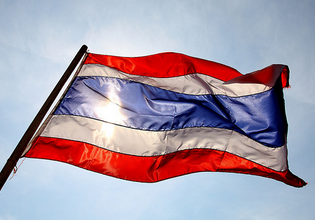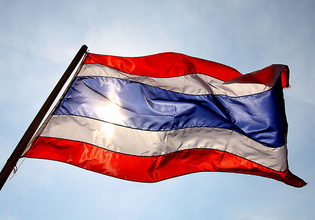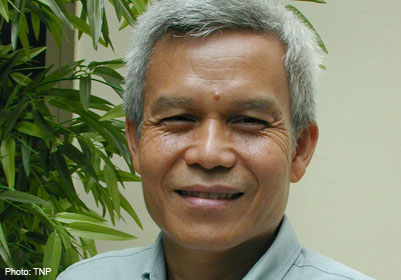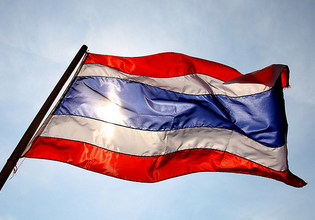
Jun 26, 2017 | Advocacy
Amnesty International (AI) and the ICJ welcome the commitments made by the Royal Thai Government to prevent torture and other ill-treatment and urge authorities to ensure no further delay in implementing these undertakings.
The statement came on on the 30th anniversary of the United Nations Convention against Torture and Other Cruel, Inhuman or Degrading Treatment or Punishment (UNCAT) – marked on June 26 as the International Day in Support of Victims of Torture.
October 2017 will mark ten years since Thailand pledged to respect and protect the right of all persons to be free from torture and other ill-treatment by ratifying the Convention against Torture. AI and the ICJ however remain concerned that torture is still prevalent throughout the country.
Thailand has made significant and welcome commitments at the United Nations Committee against Torture, Universal Periodic Review of the Human Rights Council and UN Human Rights Committee to uphold its obligations under the Convention against Torture.
These include commitments to penalize torture, as defined in the Convention, under its criminal law and to create an independent body to visit all places of detention under the purview of the Ministry of Justice.
However, to date, these remain paper promises, which have not yet translated into action.
AI and the ICJ call on Thailand to move forward with these commitments, including by criminalizing torture and other acts of ill-treatment, establishing practical, legal and procedural safeguards against such practices, and ensuring that victims and others can report torture and other ill-treatment without fear.
The prohibition of torture and other ill-treatment in international law is absolute. Torture is impermissible in all circumstances, including during public emergencies or in the context of threats to public security.
AI and the ICJ regret repeated delays to the finalisation and passage of Thailand’s Draft Prevention and Suppression of Torture and Enforced Disappearance Act.
If the remaining discrepancies with the Convention against Torture are addressed, the passage of this Act would criminalise torture and enforced disappearances and establish other safeguards against these acts.
Both organizations urge the Royal Thai Government to actualise its commitment to eradicating torture by addressing remaining shortcomings in the Act and prioritising its passage into law in a form that fully complies with Thailand’s obligations under the Convention against Torture and the Convention for the Protection of All Persons from Enforced Disappearance.
Additional consultations with the public and other parties should be carried out in a transparent and inclusive manner and without delay.
Similarly, AI and the ICJ urge Thailand to move ahead with its commitment to ratify the Optional Protocol to the Convention against Torture, which obligates authorities to establish a National Preventive Mechanism – an independent expert body authorised to visit places of detention, including by carrying out unannounced visits – as well as to allow such visits by an international expert body.
Such independent scrutiny is critical to prevent torture and other ill-treatment, including through implementing their detailed recommendations based on visits.
Authorities should also act immediately on the commitment made at Thailand’s Universal Periodic Review before the United Nations Human Rights Council in 2016 to inspect places of detention in line with the revised UN Standard Minimum Rules for the Treatment of Prisoners, also known as the Nelson Mandela Rules.
Thailand-Torture satement AI-ICJ-Advocacy-ENG-2017 (full statement in English, PDF)
Thailand-Torture satement AI-ICJ-Advocacy-THA-2017 (full statement in Thai, PDF)

Feb 13, 2017 | Advocacy, Non-legal submissions
The ICJ and Thai Lawyers for Human Rights (TLHR) have made a submission to the UN Human Rights Committee in view of its forthcoming review of the implementation of the International Covenant on Civil and Political Rights by Thailand.
In their submission, the ICJ and TLHR have brought to the Committee’s attention their concerns in relation to the following issues:
- Constitutional and legal framework within which the Covenant is implemented;
- States of emergency;
- Right to life and prohibition of torture and cruel, inhuman or degrading treatment or punishment;
- Right to liberty and security of the person, treatment of persons deprived of their liberty, right to a fair trial and independence of judiciary; and
- Freedoms of expression and association and right to peaceful assembly.
Thailand-ICCPR Submission ICJ-TLHR-Advocacy-Non legal submissions-2017-ENG (Full text in PDF)
Thailand-ICCPR Submission ICJ-TLHR-Advocacy-Non legal submissions-2017-THA (Thai version, in PDF)

Feb 9, 2017 | Advocacy, News
The ICJ today welcomed the indefinite suspension of the hearings on the death penalty bills by the Philippine Senate’s Committee on Justice and Human Rights.
The Committee’s Chairman, Senator Richard Gordon, indicated the suspension was needed until the Department of Justice is able to submit its opinion on the Philippines’ obligations under the Second Optional Protocol to the International Covenant on Civil and Political Rights (ICCPR).
That instrument requires the Philippines to maintain its abolition.
“Abolitionist States may not return to the use of the death penalty generally under the ICCPR, and States that become party to the Second Optional Protocol assume very specific obligations to that effect,” said Emerlynne Gil, ICJ’s Senior International Legal Adviser for Southeast Asia. “There really is no inconsistency between the Second Optional Protocol and the Philippine Constitution.”
“As a general rule, the Philippine Constitution prohibits the death penalty except for compelling reasons involving heinous crimes. But in no way does it mandate that the death penalty be put into effect,” she added.
By ratifying the Second Optional Protocol, the Philippines has voluntarily chosen to be bound by an international obligation not to impose the death penalty – which it might otherwise have had the option to do under the Constitution.
As the ICJ explains in a memorandum on this issue, this is the very essence of treaty making.
“To announce long after ratification that a treaty is inconsistent with the Constitution and so not to be treated as binding, would call into question virtually every treaty to which Philippines is a party,” Gil said.
“This would contradict the most basic foundations of the international legal system and would lead other countries to view the Philippines as virtually incapable of making a reliable international legal agreement,” she added.
The ICJ emphasized that if the Philippines brings back the death penalty into its domestic laws, it would also be in violation of its obligations under the ICCPR, which effectively prohibits States from bringing back the death penalty once it has been abolished in domestic laws.
The Philippines cannot withdraw from Second Optional Protocol, which has no denunciation or withdrawal clause, the ICJ says.
The UN Human Rights Committee has explained that a denunciation clause was deliberately omitted because once the people are accorded the protection of the rights under the Second Optional Protocol, they shall not be deprived of such protection.
Background
On 7 February 2017, the Senate Committee on Justice and Human Rights held its first hearing on the proposed measure reintroducing the death penalty for illegal drugs and other crimes.
A similar bill to restore the death penalty is also currently being debated in plenary at the House of Representatives.
At the Senate hearing, senators opposing the proposed measure recalled that the Philippines is a State Party to the Second Optional Protocol, and thus, it is obliged not to execute any person within its jurisdiction.
Senator Richard Gordon, who chairs the Committee, thereafter, called for the indefinite suspension of the hearings on this matter until there could be clarity on the ramifications on the Philippines if it breaches its obligations under the Second Optional Protocol.
Contact
Emerlynne Gil, ICJ’s Senior International Legal Adviser, t +66 840923575 ; e: emerlynne.gil(a)icj.org
Philippines-Memo OP2 and Const-Advocacy-2017-ENG (Memo in English, PDF)

Dec 15, 2016 | Advocacy
On the fourth anniversary of the enforced disappearance of prominent Lao civil society leader Sombath Somphone, the ICJ and other organizations condemn the government’s ongoing failure to conduct an effective investigation with a view to determining his fate.
The full statement can be downloaded here:
Laos-sombath4years-advocacy-2016-eng (in PDF)

Nov 21, 2016 | Advocacy, News
The ICJ and five other human rights groups are calling on the Malaysian authorities to drop all charges against the Bersih organizers and activists, return all items confiscated from their offices and stop making further arbitrary arrests in connection with these events.
Download the statement here:
malaysia-bersih-5-statement-advocacy-2016-eng (full text in PDF)

Oct 25, 2016 | Advocacy
The ICJ, Amnesty International, FIDH, Fortify Rights and Lawyers’ Rights Watch Canada urge Thailand’s National Legislative Assembly (NLA) to reject currently proposed amendments to the 2007 Computer-Related Crime Act (CCA).
The full text of their statement can be dowloaded here:
thailand-cca-amendments-advocacy-2016-eng (in PDF)
thailand-cca-amendments-advocacy-2016-tha (Thai, in PDF)










